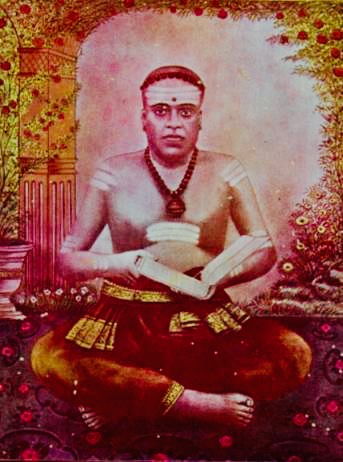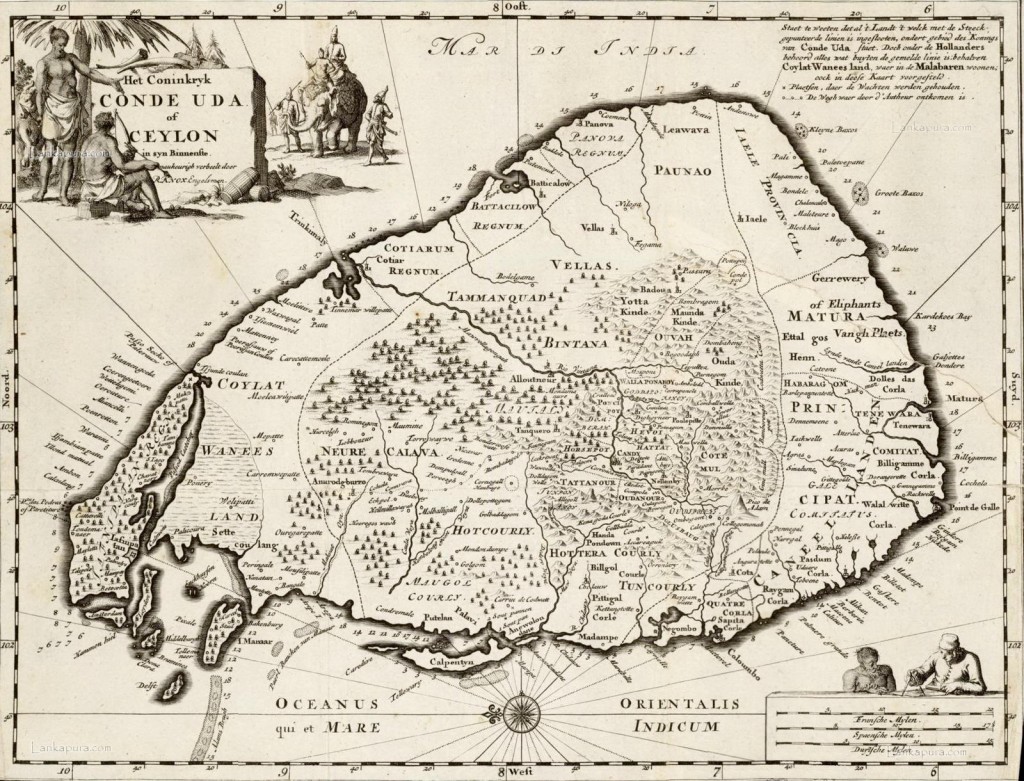- Arumuga Navalar (1822-1879) is considered the first Tamil layman to undertake as his life’s career the intellectual and institutional response of Saivism to Christianity in Sri Lanka and India
- The title ‘Navalar’ means ‘one who is learned’ was bestowed upon him by a Saiva monastery in India in 1849
- He distributed a series of tracts and pamphlets for the public, expounding the principles of Hinduism and answering all criticisms of the missionaries head on
The native traditions and religious knowledge needed reviving and reforming as they had come under a long period of dormancy and decline during the 400 years of colonial rule by various European powers. The 18th and 19th century Tamils in India and Sri Lanka found themselves in the midst of intrusive Protestant Missionary activity and conversions.
The masses of the Hindu faith needed to be schooled to prevent these conversions. Arumuga Navalar (1822-1879) is considered the first Tamil layman to undertake as his life’s career the intellectual and institutional response of Saivism to Christianity in Sri Lanka and India. The Saivite revival in Jaffna, the capital city of the Northern Province of Sri Lanka is dominated by him.
Arumuga Navalar was born in Nallur, Jaffna as Arumugam Pillai. The title ‘Navalar’ means ‘one who is learned’ was bestowed upon him by a Saiva monastery in India in 1849. His father was a Tamil poet and mother, a devout Hindu. He was a student of the Christian missionary school system that assisted in the translation of the King James Bible into Tamil.
He studied at the Jaffna Central College, a Wesleyan mission school and was educated in both the Saivite and Christian traditions but never converted to. He not only prevented large-scale conversions to Protestantism but also founded schools that produced pupils who were well versed in Hinduism and could successfully defend Saivism against Christian charges.
According to the LankaWeb article, Arumugam started to question Christianity from his early years. He published a comparative study of Christianity and Saivism pointing out the weakness in the argument that Protestant missionaries had used against local Saiva practices in the Morning Star. He concluded the seminar letter stating that there was no difference between Christianity and Saivism as far as idol worship and temple rituals were concerned, thus admonishing the missionaries for misrepresenting their own religion.

Arumuka Navalar Image Source: Wikipedia Commons
Using the same techniques adopted by the missionaries to educate and promote their religion, Arumugam wanted to establish Saiva schools in every village, where Hindu education could be imparted in a Hindu environment with the aid of school textbooks specially written for the purpose. He found value in English education and founded the Saivanagala Vidyasalai in 1872 which later became Jaffna Hindu College, the premier Hindu English School in the island.Over 100 primary and secondary schools were built based on his teaching methods and they flourished producing pupils who could also function effectively in a western oriented world.
Having realised that the Hindus of Jaffna needed a clearer understanding of their religion if they were to stop Christian conversion, Arumuga Navalar decided to provide an authoritative restatement of the Saiva doctrine and a systematic compilation of its ideas. With his efforts, he succeeded in building confidence in Hindus and in their religion which they had previously lacked, says the LankaWeb post.
With the help of the printing press he established in 1849 at Vannarponnai and another in Madras, Arumugam published two texts, a teachers guide Cüdãmani Nikantu and Saundarya Lahari, a Sanskrit poem geared towards devotion.The Saiva dusana parihara, (the abolition of the abuse of Saivism) published in 1854, a training manual for the use of Saivas in their opposition to the missionaries had done the maximum damage to the Christian missionaries.
He served as a true hero who took all the necessary steps in protecting the faith of the believers. He even distributed a series of tracts and pamphlets for the public, expounding the principles of Hinduism and answering all criticisms of the missionaries head on. His efforts earned him the respect of the missionaries who admitted that the adroitly anticipated every possible objection and replied them.
Source: The First Tamil Layman Arumuga Navalar: Protector Of Hinduism in British Ceylon

